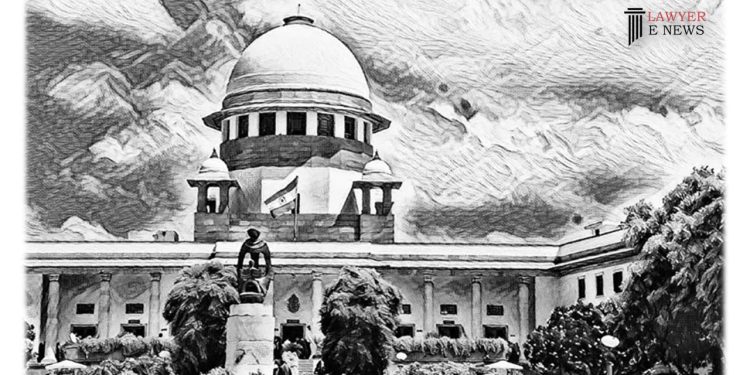-
by Admin
15 February 2026 5:35 AM



In a significant ruling, the Supreme Court of India has quashed an order directing the petitioner to deposit 10% of the amount of a dishonored cheque as interim compensation. The judgment, delivered by a bench comprising Hon’ble Mr. Justice S. Ravindra Bhat and Hon’ble Mr. Justice Aravind Kumar, addressed the tenability of the trial court’s order under Section 143A of the Negotiable Instruments Act, 1881.
The court held that the order was in violation of Section 143A(1) of the Act, which stipulates that interim compensation can only be granted when the accused pleads not guilty to the accusation in the complaint. The order in question was issued before the accused had entered a plea, thus infringing upon the statutory provision.
Quoting from the judgment, the bench stated, “As is evident from a plain reading of Section 143A(1)(a), it is only where the accused ‘pleads not guilty’ of the accusation made in the complaint that interim compensation under Section 143A(1) can be granted. In the present case, the Magistrate did not issue the order after the plea of the accused was entered, but before that i.e. after he answered the summons.”
The court emphasized that since the trial had reached an advanced stage, no further orders were made. However, it clarified that the complainant could seek appropriate relief, including under Section 143A, at any stage of the trial, thus upholding the complainant’s right to claim relief.
This judgment highlights the importance of adhering to procedural requirements and statutory provisions while granting interim compensation in dishonored cheque cases. It sets a precedent for future cases and provides clarity on the applicability of Section 143A at different stages of the trial.
The decision of the Supreme Court carries significant implications for the enforcement of the Negotiable Instruments Act and ensures fairness in the proceedings related to dishonored cheques.
Date of Decision: 7th July 2023
PAWAN BHASIN vs STATE OF U.P. & ANR.
